How Car Meets Became Therapy Sessions With Engine
Car culture has always had its own language—revving engines, chrome polish, and the unspoken respect between people who know the difference between a cold start and a cranky alternator. But lately, something else has been happening at car meets. In between the show-offs and slow rolls, you’ll find real conversations. Honest ones. About life, stress, anxiety, and everything in between.
What used to be all about cars has quietly become a form of therapy—with the engine as background noise. Welcome to the softer side of car culture, where the emotional release comes as easily as popping the hood.
The Garage as a Safe Space

For many, the garage has always been a personal escape. It’s where you go when life gets loud and the only thing that makes sense is the rhythm of a ratchet. At car meets, that garage energy extends into a shared space—people bond over builds, repairs, and upgrades. But beneath the talk of suspension setups and horsepower, there’s something deeper happening. Fixing a car becomes a stand-in for fixing yourself, and suddenly you’re not just surrounded by fellow enthusiasts—you’re surrounded by people who get it.
Talking Cars, Talking Life
There’s something disarming about standing next to a car instead of sitting face-to-face. It removes pressure. You’re not expected to make eye contact or say everything perfectly. You’re both just looking at a machine, which makes it easier to talk about the stuff that’s hard to say out loud. Breakups. Job stress. Mental health. Grief. The car gives you a place to anchor the conversation—it’s the middleman that makes the vulnerability feel less scary.
Shared Struggles Under the Hood

A lot of people in the car community come from similar backgrounds—working-class families, blue-collar jobs, or tough upbringings. When you’ve had to build things yourself, both in life and under the hood, you develop a deep respect for others who’ve done the same. That shared grind creates a foundation of trust. So when someone vents about burnout or opens up about losing someone close, it doesn’t feel like oversharing—it feels like something real that everyone understands.
Night Drives and Mental Clarity
For a lot of gearheads, the car isn’t just a project—it’s therapy on wheels. Late-night drives with the music low and the windows down are a kind of moving meditation. The sound of the engine, the feel of the road, and the solitude of being in your own little world create a space where your thoughts can breathe. Car meets become the meetup point before or after those drives—a space to debrief, swap stories, and share that unspoken understanding that sometimes, the drive is the medicine.
Building More Than Cars

The sense of community at car meets goes far beyond nuts and bolts. People are forming lifelong friendships, support systems, and even informal mental health check-ins. You’ll hear “You good?” just as often as “What are you running under the hood?” And when someone disappears for a few weeks, people notice—and they reach out. For many, this kind of connection isn’t easy to come by elsewhere. The car meet becomes more than a hobby—it’s a lifeline.
Car meets might look like just a bunch of modified cars in a parking lot, but for a lot of people, they’re something way deeper. They’re support groups with turbos. Therapy sessions wrapped in steel. In a world that doesn’t always give space for people—especially men—to talk about their emotions, car culture has created its own path to healing.






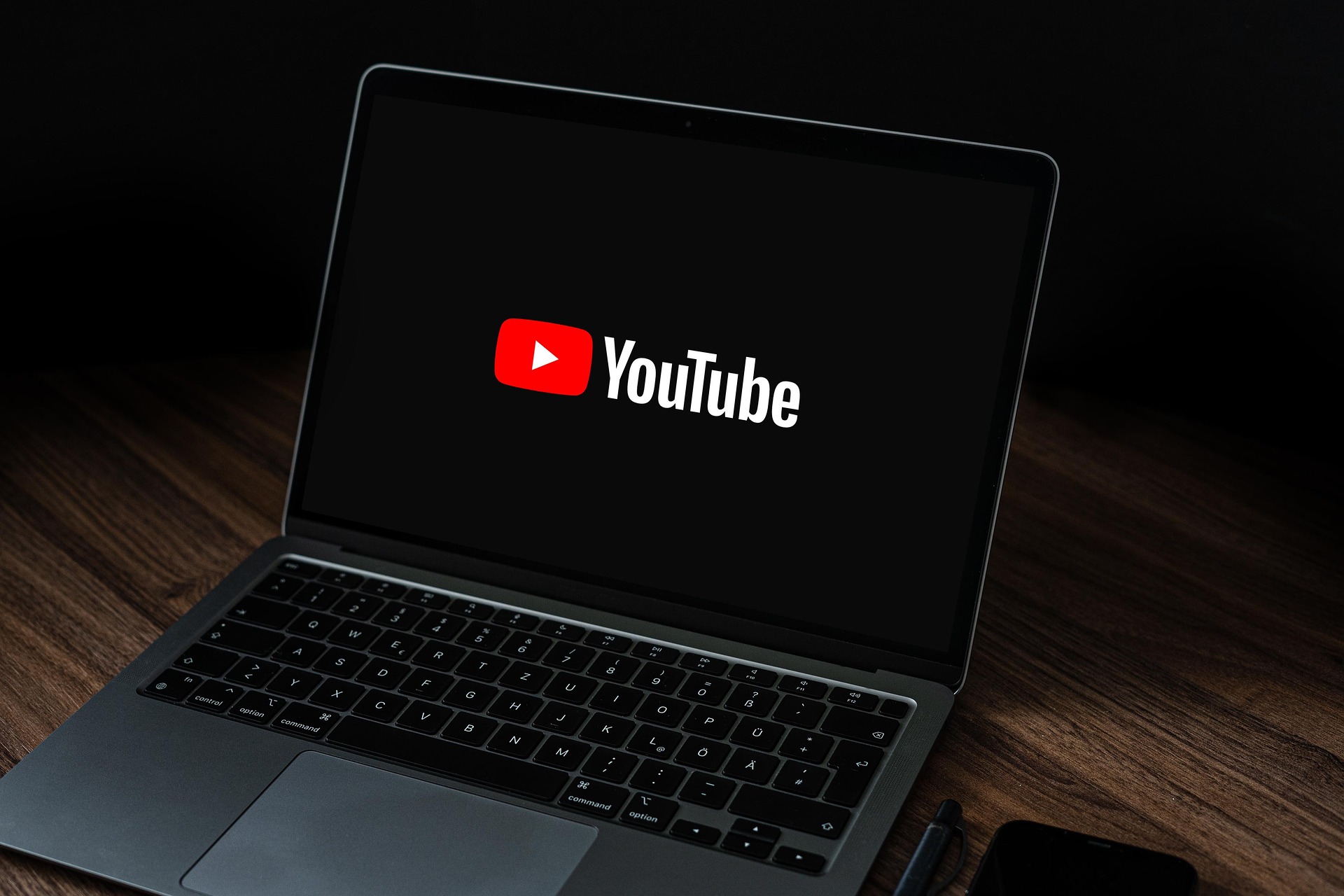



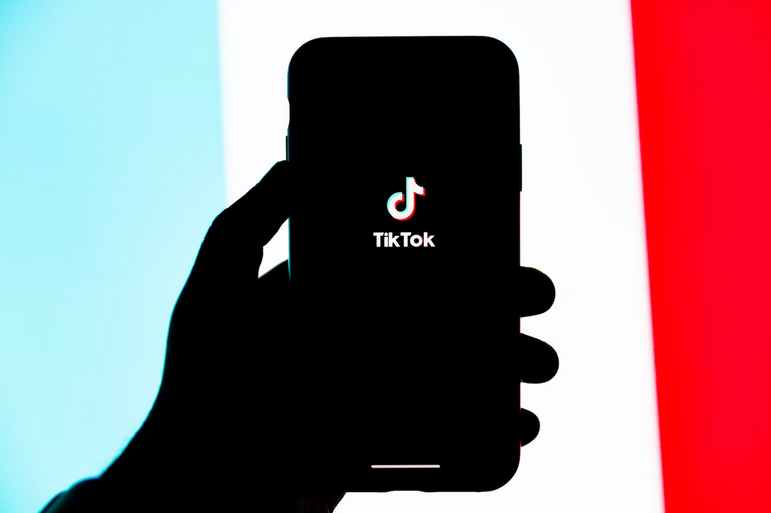
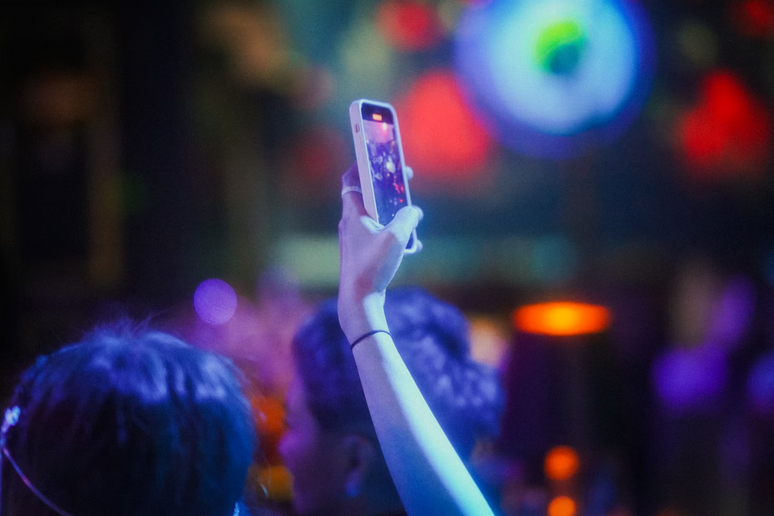
 Another critical factor to assess is the authenticity of the follower package. Some packages may rely on bot accounts or fake followers, which can harm your reputation and hinder your long-term success on TikTok. Authenticity is paramount, as genuine engagement and organic growth are key to building a loyal and committed audience. Before purchasing a follower package, research the provider’s reputation and read reviews to ensure that they deliver real, active followers who will contribute positively to your TikTok presence.
Another critical factor to assess is the authenticity of the follower package. Some packages may rely on bot accounts or fake followers, which can harm your reputation and hinder your long-term success on TikTok. Authenticity is paramount, as genuine engagement and organic growth are key to building a loyal and committed audience. Before purchasing a follower package, research the provider’s reputation and read reviews to ensure that they deliver real, active followers who will contribute positively to your TikTok presence.

 One of the current trends in purchasing YouTube likes is the ability to target specific demographics. Rather than buying likes from a general pool, creators now have the option to choose the audience they want to target. This targeted approach allows them to reach viewers who are more likely to engage with their content and become loyal subscribers. By understanding their niche and identifying the characteristics of their ideal audience, creators can strategically purchase YouTube likes to optimize their reach and engagement.
One of the current trends in purchasing YouTube likes is the ability to target specific demographics. Rather than buying likes from a general pool, creators now have the option to choose the audience they want to target. This targeted approach allows them to reach viewers who are more likely to engage with their content and become loyal subscribers. By understanding their niche and identifying the characteristics of their ideal audience, creators can strategically purchase YouTube likes to optimize their reach and engagement. Recently, there has been a shift towards diversifying engagement metrics beyond just likes. Creators now have the option to purchase a variety of engagement metrics such as comments, shares, and even video views. This trend acknowledges the importance of a well-rounded engagement profile for YouTube algorithms. By having a diverse set of engagement metrics, creators can create a genuine and dynamic engagement ecosystem that appeals to both viewers and YouTube algorithms.
Recently, there has been a shift towards diversifying engagement metrics beyond just likes. Creators now have the option to purchase a variety of engagement metrics such as comments, shares, and even video views. This trend acknowledges the importance of a well-rounded engagement profile for YouTube algorithms. By having a diverse set of engagement metrics, creators can create a genuine and dynamic engagement ecosystem that appeals to both viewers and YouTube algorithms. As the practice of purchasing
As the practice of purchasing 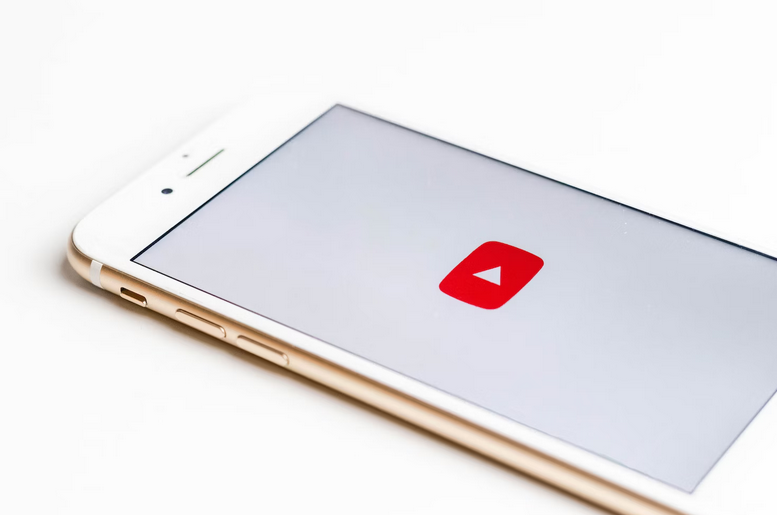


 Optimizing your video titles, descriptions, and tags is crucial for attracting the right audience to your YouTube channel. When it comes to titles, make sure they are attention-grabbing and relevant to the content of your videos. Use keywords that accurately describe what viewers can expect when watching your content. Next, focus on crafting compelling descriptions that provide a brief overview of your video’s topic while incorporating relevant keywords naturally.
Optimizing your video titles, descriptions, and tags is crucial for attracting the right audience to your YouTube channel. When it comes to titles, make sure they are attention-grabbing and relevant to the content of your videos. Use keywords that accurately describe what viewers can expect when watching your content. Next, focus on crafting compelling descriptions that provide a brief overview of your video’s topic while incorporating relevant keywords naturally.

 Another way to engage your audience and keep them coming back for more is by incorporating interactive elements into your Instagram Stories. Adding features such as polls, quizzes, or question stickers can encourage users to participate in your content actively. Polls are a great way to gather feedback from your followers. You can ask them simple questions like “Which outfit do you prefer?” or “What type of content would you like to see next?”. This not only makes people feel involved but also gives you valuable insights into their preferences and interests.
Another way to engage your audience and keep them coming back for more is by incorporating interactive elements into your Instagram Stories. Adding features such as polls, quizzes, or question stickers can encourage users to participate in your content actively. Polls are a great way to gather feedback from your followers. You can ask them simple questions like “Which outfit do you prefer?” or “What type of content would you like to see next?”. This not only makes people feel involved but also gives you valuable insights into their preferences and interests.
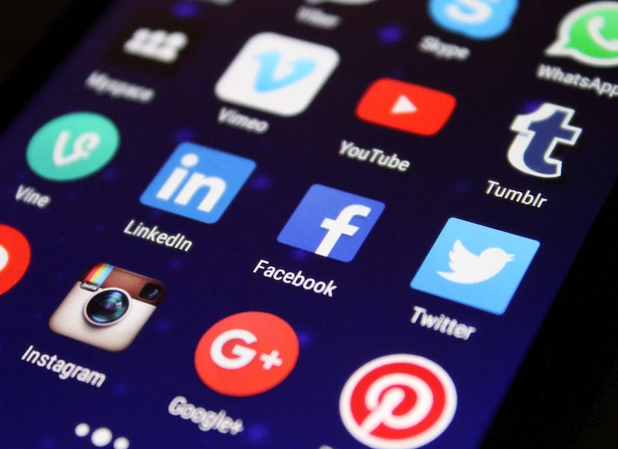








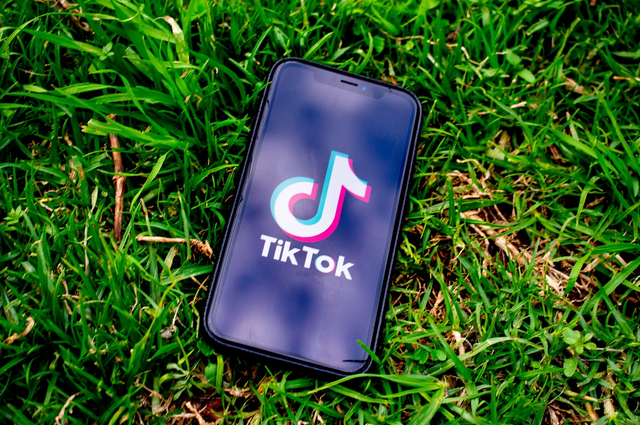


 Another reason to hire professional photographers is that they will be able to take high-quality photos. This is important if you want to use the photos for marketing purposes or simply to have a lasting record of the event.
Another reason to hire professional photographers is that they will be able to take high-quality photos. This is important if you want to use the photos for marketing purposes or simply to have a lasting record of the event. When you hire professional photographers for your corporate event, you can be sure that they will have the utmost respect for your guests and staff. They understand that people may not want to be photographed, so they will always ask permission before taking any photos.
When you hire professional photographers for your corporate event, you can be sure that they will have the utmost respect for your guests and staff. They understand that people may not want to be photographed, so they will always ask permission before taking any photos.


 Not all plants can thrive indoors. You have to select those that can withstand less sunshine and air. Sturdy bushes can stay inside your home in only a number of days, and you may notice that their leaves will be turning yellow. Plants such as the snake plant and ZZ plant are tried and tested indoor plants. They can be left inside your home for as long as you want without changing their textures. Cactus and other succulents are suitable indoors when placed near windows.
Not all plants can thrive indoors. You have to select those that can withstand less sunshine and air. Sturdy bushes can stay inside your home in only a number of days, and you may notice that their leaves will be turning yellow. Plants such as the snake plant and ZZ plant are tried and tested indoor plants. They can be left inside your home for as long as you want without changing their textures. Cactus and other succulents are suitable indoors when placed near windows. Floor Area
Floor Area

 Trimming your hair precisely can help in retaining its moisture, strength, and length. Physical changes like combing, ceramic styling, brushing and blow-drying can affect your hair from the shaft to the ends. Improper handling of everyday tools can be a factor in how you often need a trim. The closer the hair is close to its natural state, the more the hair will be pure, strong and healthy. The best potential for healthy hair is in its natural state.
Trimming your hair precisely can help in retaining its moisture, strength, and length. Physical changes like combing, ceramic styling, brushing and blow-drying can affect your hair from the shaft to the ends. Improper handling of everyday tools can be a factor in how you often need a trim. The closer the hair is close to its natural state, the more the hair will be pure, strong and healthy. The best potential for healthy hair is in its natural state.





 When trying to find the right e-cig for you, both upfront and long-terms costs matter. However, do not go for the cheapest product you can find in the name of saving money. Why? Because you’re most likely to end up with a low-quality product that won’t give you the best smoking experience. So, it’s better to pay a little more for a quality product that you will enjoy using than buy a cheap one that won’t last.
When trying to find the right e-cig for you, both upfront and long-terms costs matter. However, do not go for the cheapest product you can find in the name of saving money. Why? Because you’re most likely to end up with a low-quality product that won’t give you the best smoking experience. So, it’s better to pay a little more for a quality product that you will enjoy using than buy a cheap one that won’t last.
 This is an important aspect of an e-commerce solution. This is because it manages all products under one roof. Usually, it comes with batch export and import functions. This is a useful feature when you have a wide range of products on your website. The good thing about this feature is that it reduces the time of upload and download. For instance, how much time are you likely to waste if you have to upload 10,000 products. The catalog will help you manage prices of various products easily. It ought to allow you to schedule prices of a wide range of products automatically.
This is an important aspect of an e-commerce solution. This is because it manages all products under one roof. Usually, it comes with batch export and import functions. This is a useful feature when you have a wide range of products on your website. The good thing about this feature is that it reduces the time of upload and download. For instance, how much time are you likely to waste if you have to upload 10,000 products. The catalog will help you manage prices of various products easily. It ought to allow you to schedule prices of a wide range of products automatically. Depending on nature of products you sell, a well-designed delivery and shipping module is quite important for an e-commerce site. In fact, the shipping and delivery module is an important feature for end customers. The system ought to allow your visitors to select a wide range of delivery options. Moreover, the system ought to auto calculate the shipping charges. You should note that some systems support some international carriers such as FedEx and DHL. In this way, you can provide real-time shipping rates to the customers.
Depending on nature of products you sell, a well-designed delivery and shipping module is quite important for an e-commerce site. In fact, the shipping and delivery module is an important feature for end customers. The system ought to allow your visitors to select a wide range of delivery options. Moreover, the system ought to auto calculate the shipping charges. You should note that some systems support some international carriers such as FedEx and DHL. In this way, you can provide real-time shipping rates to the customers.
 Doing business is different from being an artist. Artists are mostly idealists. They create their arts and sell them. Artists rarely care about the mass hypes and the popular trends. They are the creators of the mass trends.
Doing business is different from being an artist. Artists are mostly idealists. They create their arts and sell them. Artists rarely care about the mass hypes and the popular trends. They are the creators of the mass trends. As a boss to yourself, you must handle everything in your business by yourself in one way or another. Although you hire people to work for you, you must know how to evaluate the quality of their works. And one of the business subjects that is essential to learn is marketing.
As a boss to yourself, you must handle everything in your business by yourself in one way or another. Although you hire people to work for you, you must know how to evaluate the quality of their works. And one of the business subjects that is essential to learn is marketing. When building a company, you must have the law on your side. Taxation, trade agreements, intellectual copyrights, and employment regulation should follow the rules set by the local authority. You may learn everything by yourself, and you should. But doing all of those duties without assistance will be prone to errors.
When building a company, you must have the law on your side. Taxation, trade agreements, intellectual copyrights, and employment regulation should follow the rules set by the local authority. You may learn everything by yourself, and you should. But doing all of those duties without assistance will be prone to errors.
 This system is networked. Data can, therefore, be updated and replicated on all the nodes within the network. This has made this system highly available. Individuals can access this network even when the nodes become inaccessible because the whole network will continue working.
This system is networked. Data can, therefore, be updated and replicated on all the nodes within the network. This has made this system highly available. Individuals can access this network even when the nodes become inaccessible because the whole network will continue working. clearing houses or third party in the network model. This means that no fees are paid to the trusted third parties or clearing houses.
clearing houses or third party in the network model. This means that no fees are paid to the trusted third parties or clearing houses.
 Vinyl siding is much cheaper
Vinyl siding is much cheaper Vinyl siding requires less maintenance
Vinyl siding requires less maintenance
 or remove moisture content from the food. Well, there are many ways one can dehydrate their food. Ideally, a device like the nesco american harvest dehydrator removes almost 80% of the moisture or water content in various foods. Due to the convenience and effectiveness that comes with a food dehydrator, most people have seen the need to have this appliance in their kitchen.
or remove moisture content from the food. Well, there are many ways one can dehydrate their food. Ideally, a device like the nesco american harvest dehydrator removes almost 80% of the moisture or water content in various foods. Due to the convenience and effectiveness that comes with a food dehydrator, most people have seen the need to have this appliance in their kitchen. Throwing away foods or seeing them get spoiled is some form of wasting money. You can save or cut down these losses by dehydrating your foods. Moreover, having a dehydrator gives you the option of buying foods in bulk and storing them for future use.
Throwing away foods or seeing them get spoiled is some form of wasting money. You can save or cut down these losses by dehydrating your foods. Moreover, having a dehydrator gives you the option of buying foods in bulk and storing them for future use. n be a great tool to help you find a reputable company. You can easily access reviews and opinions made by other consumers who have used the given service. Also, you can get other details such as quality, customer service, delivery times, prices, and assistance of staff. You need to understand that there are drawbacks of using the internet. For instance, as much as you may get factual information, some of it may have emotional contamination.
n be a great tool to help you find a reputable company. You can easily access reviews and opinions made by other consumers who have used the given service. Also, you can get other details such as quality, customer service, delivery times, prices, and assistance of staff. You need to understand that there are drawbacks of using the internet. For instance, as much as you may get factual information, some of it may have emotional contamination. ility is another important aspect to consider when searching for a reliable air conditioning service contractor. If the company is not credible, you may end up paying a lot of money. You need to know the company in and out. Check whether they are honest with their promises and estimates. Also, you should whether they are reliable. This is an attribute that requires a lot of trust, which is quite important in choosing a stranger to come to your house and fix the AC issues.
ility is another important aspect to consider when searching for a reliable air conditioning service contractor. If the company is not credible, you may end up paying a lot of money. You need to know the company in and out. Check whether they are honest with their promises and estimates. Also, you should whether they are reliable. This is an attribute that requires a lot of trust, which is quite important in choosing a stranger to come to your house and fix the AC issues.
 The company that has specialized in storage has access to the latest technology used in storage. This is because the storage company has to find ways of staying relevant in the competitive market hence they will have to invest in such storage facilities. This technology is often too expensive to buy for a company that is involved in other functions such as production. This makes it a cheaper option to outsource hence forgo the cost of buying and maintaining facilities which use the latest technology.
The company that has specialized in storage has access to the latest technology used in storage. This is because the storage company has to find ways of staying relevant in the competitive market hence they will have to invest in such storage facilities. This technology is often too expensive to buy for a company that is involved in other functions such as production. This makes it a cheaper option to outsource hence forgo the cost of buying and maintaining facilities which use the latest technology. Having your storage facility is an additional cost to your operating expenses. The company does not only have to buy storage equipment but also hire and train people to handle the equipment. The company will also have to incur the cost of maintenance and repairs. Outsourcing a storage company will help it cut on costs since it will only have to pay for the storage services and not the other costs that come with handling storage facilities.
Having your storage facility is an additional cost to your operating expenses. The company does not only have to buy storage equipment but also hire and train people to handle the equipment. The company will also have to incur the cost of maintenance and repairs. Outsourcing a storage company will help it cut on costs since it will only have to pay for the storage services and not the other costs that come with handling storage facilities.

 It is a fairly new trend in the real estate market, but in fact, it has been around for many years. There are groups of property investors who are willing to purchase your house for cash. Yes, you read it right “for cash.” They will send a representative to inspect your house at a convenient time, and you will get an on the spot cash offer. If you are agreeable, you can have the money in your pocket in a matter of days. You will not have to bother with fixing up the place because they will buy it as is and give you top-dollar too.
It is a fairly new trend in the real estate market, but in fact, it has been around for many years. There are groups of property investors who are willing to purchase your house for cash. Yes, you read it right “for cash.” They will send a representative to inspect your house at a convenient time, and you will get an on the spot cash offer. If you are agreeable, you can have the money in your pocket in a matter of days. You will not have to bother with fixing up the place because they will buy it as is and give you top-dollar too.
 Video production experts who have specialized in business and corporate video production are also professional marketers, and they know what will move the audience. Therefore, involving them in the content design will allow their advice to be incorporated and can really make an impact. Additionally, it will avoid going back to the drawing board for amendments during the actual production. Some corporate companies contract reputable video production companies to work with them whenever they need an advertisement video.
Video production experts who have specialized in business and corporate video production are also professional marketers, and they know what will move the audience. Therefore, involving them in the content design will allow their advice to be incorporated and can really make an impact. Additionally, it will avoid going back to the drawing board for amendments during the actual production. Some corporate companies contract reputable video production companies to work with them whenever they need an advertisement video. Reputable video production companies help the businesses to conduct the test on how the audience will receive the marketing videos. If need be, they do quick amendments and again assist the marketing team I placing the video on the market. This is done through the company website, various social media platforms and the popular video tubes online.
Reputable video production companies help the businesses to conduct the test on how the audience will receive the marketing videos. If need be, they do quick amendments and again assist the marketing team I placing the video on the market. This is done through the company website, various social media platforms and the popular video tubes online.




 As stated early, you need not reveal your information when you are transacting using bitcoins; all the transactions are discreet. There is always the option of being anonymous when using bitcoins as opposed to when you are transacting with cash where you need to disclose all your information.
As stated early, you need not reveal your information when you are transacting using bitcoins; all the transactions are discreet. There is always the option of being anonymous when using bitcoins as opposed to when you are transacting with cash where you need to disclose all your information.
 Integrity Luxury Homes is a company based in Scottsdale, Arizona that specializes in building luxury and custom homes. If you take a look at their portfolio, you will be mesmerized by the luxury homes that they have built for their clients. And so, now that you are in the midst of laying out the plans for your dream home, this particular team of home builders would be your best choice.
Integrity Luxury Homes is a company based in Scottsdale, Arizona that specializes in building luxury and custom homes. If you take a look at their portfolio, you will be mesmerized by the luxury homes that they have built for their clients. And so, now that you are in the midst of laying out the plans for your dream home, this particular team of home builders would be your best choice. When it comes to reliability, Integrity Luxury Homes is definitely a winner. They won’t promise you something that they won’t be able to do unlike what other companies do just to gain your business. With this team, you can be confident that they will be there for you from the beginning up to the last stage of the construction of your dream home.
When it comes to reliability, Integrity Luxury Homes is definitely a winner. They won’t promise you something that they won’t be able to do unlike what other companies do just to gain your business. With this team, you can be confident that they will be there for you from the beginning up to the last stage of the construction of your dream home.
 When it comes to tactical or military backpacks, there are various types and brands that you can choose from. However, the best one would depend on what you are looking for and how you are going to use it. Although this particular bag is popular because it can contain a lot of stuff, it doesn’t necessarily mean that you have to find the biggest one. It would still depend on the purpose and some other factors.
When it comes to tactical or military backpacks, there are various types and brands that you can choose from. However, the best one would depend on what you are looking for and how you are going to use it. Although this particular bag is popular because it can contain a lot of stuff, it doesn’t necessarily mean that you have to find the biggest one. It would still depend on the purpose and some other factors. Some military backpacks have many compartments while some do not. So, depending on how you are going to use the bag that you are looking for, determine how big the storage that your activity will require. Say for example you are going to a medical mission. Pick a backpack that can carry all the important medical equipment or supplies that you will be utilizing. The key is think of all the things that you need to bring. That would be the best way for you to identify how many compartments you will need as well as how big they are.
Some military backpacks have many compartments while some do not. So, depending on how you are going to use the bag that you are looking for, determine how big the storage that your activity will require. Say for example you are going to a medical mission. Pick a backpack that can carry all the important medical equipment or supplies that you will be utilizing. The key is think of all the things that you need to bring. That would be the best way for you to identify how many compartments you will need as well as how big they are.
 Some individuals may think that water damage restoration is all about cleaning up the mess after a flood, but this is not the case. It is not just about getting rid of the water content and make the area dry. In fact, even after the place has been dried, it may not still be safe and suitable for inhabitation. Restoring a home that has been affected by a flood would involve decontamination of the place, removal of any moisture, removal of dirt and trashes that may have entered the property during the calamity, repair of electrical wirings, and drying of all the furnishing items. Only then would a home be ideal for residing again.
Some individuals may think that water damage restoration is all about cleaning up the mess after a flood, but this is not the case. It is not just about getting rid of the water content and make the area dry. In fact, even after the place has been dried, it may not still be safe and suitable for inhabitation. Restoring a home that has been affected by a flood would involve decontamination of the place, removal of any moisture, removal of dirt and trashes that may have entered the property during the calamity, repair of electrical wirings, and drying of all the furnishing items. Only then would a home be ideal for residing again. Visit the official website of Canyon State Restoration and check the specific services that this particular group is providing. With this company, you can be confident that the restoration of your home will be done efficiently.
Visit the official website of Canyon State Restoration and check the specific services that this particular group is providing. With this company, you can be confident that the restoration of your home will be done efficiently.
 Many people have found vaping as an effective way of turning away from smoking cigarettes. No wonder why the electronic cigarette industry continues to prosper and provide various devices and accessories that you may choose from according to your personal choice. Today, there are probably millions of e-cigarette users across the globe and for sure the number would still continue to grow.
Many people have found vaping as an effective way of turning away from smoking cigarettes. No wonder why the electronic cigarette industry continues to prosper and provide various devices and accessories that you may choose from according to your personal choice. Today, there are probably millions of e-cigarette users across the globe and for sure the number would still continue to grow. One of the similarities that smoking tobacco and vaping has is the presence of nicotine. As we all know, this is an addictive substance, and it is what makes you crave for more. However, when you utilize an e-cigarette, you will have the power to control the level of nicotine in your e-liquid. You can always get a vaping juice that has a controlled concentration of nicotine. There are full flavors, moderate, as well as minimal. The good thing is, there is also vaping juices that do not have nicotine and these are the liquids that are being used by those people who have successfully kept themselves away from tobacco.
One of the similarities that smoking tobacco and vaping has is the presence of nicotine. As we all know, this is an addictive substance, and it is what makes you crave for more. However, when you utilize an e-cigarette, you will have the power to control the level of nicotine in your e-liquid. You can always get a vaping juice that has a controlled concentration of nicotine. There are full flavors, moderate, as well as minimal. The good thing is, there is also vaping juices that do not have nicotine and these are the liquids that are being used by those people who have successfully kept themselves away from tobacco.
 your website, it should be not that hard to create a mobile version of it. If you are not that familiar with mobile programming, then ask someone adept in the field to help you out.
your website, it should be not that hard to create a mobile version of it. If you are not that familiar with mobile programming, then ask someone adept in the field to help you out. Always remember that Adsense ads tend to pay more if visitors to your website come from search engines. This is because the people arriving at your site used keywords to get there. Needless to say, your site will be easier to find in search engines if you use keywords correctly.
Always remember that Adsense ads tend to pay more if visitors to your website come from search engines. This is because the people arriving at your site used keywords to get there. Needless to say, your site will be easier to find in search engines if you use keywords correctly.
 e. It is important to buy a doll house that is suitable for the age of your child. For instance, if you child is younger, you might decide to buy a simple doll house.
e. It is important to buy a doll house that is suitable for the age of your child. For instance, if you child is younger, you might decide to buy a simple doll house.

 rn some free credit. The best way is to invite them to Uber. In doing so, you will be rewarding yourself and help friends out. For example, your friends will be rewarded free rides when they download the app. After they have a successful ride, you will earn a credit that is deposited to your account.
rn some free credit. The best way is to invite them to Uber. In doing so, you will be rewarding yourself and help friends out. For example, your friends will be rewarded free rides when they download the app. After they have a successful ride, you will earn a credit that is deposited to your account.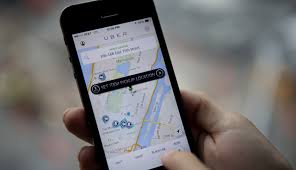 re with a friend, encourage him or her to download the app for the first time. It is an excellent opportunity to help your friend set up the account. After it is completed, let the person put the code you give him or her. Other than getting a free ride when they request for one, you can be with your friend and hitch a ride together. The next time you are with group of friends do the same.
re with a friend, encourage him or her to download the app for the first time. It is an excellent opportunity to help your friend set up the account. After it is completed, let the person put the code you give him or her. Other than getting a free ride when they request for one, you can be with your friend and hitch a ride together. The next time you are with group of friends do the same. directives, the filters, the modules, and the controllers. Other things that the student needs to know include HTTP, validation of data, input, forms, DOM and also Angular events. As for the students, it is advisable that they have prior knowledge of JavaScript, HTML and also CSS even though it may not be compulsory.
directives, the filters, the modules, and the controllers. Other things that the student needs to know include HTTP, validation of data, input, forms, DOM and also Angular events. As for the students, it is advisable that they have prior knowledge of JavaScript, HTML and also CSS even though it may not be compulsory.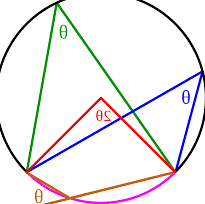 materials that we can use to help you read more on the language. We have some excellent blogs that offer an interesting perspective on the language in the various topics we will handle.
materials that we can use to help you read more on the language. We have some excellent blogs that offer an interesting perspective on the language in the various topics we will handle.

 Any Premises Can Be Cleaned
Any Premises Can Be Cleaned because you have the flexibility to choose how, where and when to watch a movie. If you like camping you can watch your favorite movie under a tree and if you are traveling you can watch a movie in a hotel room. All these is possible with Showbox Android app.
because you have the flexibility to choose how, where and when to watch a movie. If you like camping you can watch your favorite movie under a tree and if you are traveling you can watch a movie in a hotel room. All these is possible with Showbox Android app. from anywhere. You can watch a movie as you queue I in a bank. You can watch a movie in your hotel room as you travel. This is the flexibility you need to during your free times.
from anywhere. You can watch a movie as you queue I in a bank. You can watch a movie in your hotel room as you travel. This is the flexibility you need to during your free times. ere is something wrong. If the doors make alarming sounds or close all of sudden, then there is something wrong. You should look over doors now and again. If you find these problems disturbing, you may consider contacting professional garage door repair experts. It is advisable to fix problems just as they arise, instead of end up with a lot of inconvenience and high costs of repair.
ere is something wrong. If the doors make alarming sounds or close all of sudden, then there is something wrong. You should look over doors now and again. If you find these problems disturbing, you may consider contacting professional garage door repair experts. It is advisable to fix problems just as they arise, instead of end up with a lot of inconvenience and high costs of repair. expensive, it is a worth investment you are taking. This is because your peace of mind is the most important. With the garage door in the right shape, you should not worry about your house being broken even at inconvenient hours.
expensive, it is a worth investment you are taking. This is because your peace of mind is the most important. With the garage door in the right shape, you should not worry about your house being broken even at inconvenient hours.
 The scooter is designed to last for not less than ten years. With the convenience, it comes with you get the value for your money throughout this period. Nobody wants to spend their hard earned money on scooters that will develop mechanical problems within months.
The scooter is designed to last for not less than ten years. With the convenience, it comes with you get the value for your money throughout this period. Nobody wants to spend their hard earned money on scooters that will develop mechanical problems within months. gases worldwide for the reason that the greenhouse effect needs to be controlled. A scooter serves its purpose and as well aids in conserving the universe. This is because it is powered by an alternative source of energy that does not emit greenhouse gases to the environment.
gases worldwide for the reason that the greenhouse effect needs to be controlled. A scooter serves its purpose and as well aids in conserving the universe. This is because it is powered by an alternative source of energy that does not emit greenhouse gases to the environment.

 Pesticides used in the home always contaminate the air we breathe. Most pesticides used in the home contain harmful chemicals that are dangerous especially when inhaled. The only way to ensure that you don’t deal with pesticides in the home is keeping them outside the home. This is because even the empty bottles may contain some pesticides and this leaks to the home.
Pesticides used in the home always contaminate the air we breathe. Most pesticides used in the home contain harmful chemicals that are dangerous especially when inhaled. The only way to ensure that you don’t deal with pesticides in the home is keeping them outside the home. This is because even the empty bottles may contain some pesticides and this leaks to the home.

 Association
Association
 Dental implants are tooth replacements that substitute a person’s original or natural tooth in some areas of the mouth where there is a missing tooth. Many people are availing of this particular dental service not only to enhance how they look like, but also to improve the function of their teeth. And so, if you are considering to have a dental implant, you have to seek the help of a reliable dentist.
Dental implants are tooth replacements that substitute a person’s original or natural tooth in some areas of the mouth where there is a missing tooth. Many people are availing of this particular dental service not only to enhance how they look like, but also to improve the function of their teeth. And so, if you are considering to have a dental implant, you have to seek the help of a reliable dentist. When you have dental implants, supported bridges and crowns will be put in that that will protect the rest of your teeth particularly the adjacent ones. Some traditional methods of replacing teeth can cause the other teeth to be compromised due to extreme pressure.
When you have dental implants, supported bridges and crowns will be put in that that will protect the rest of your teeth particularly the adjacent ones. Some traditional methods of replacing teeth can cause the other teeth to be compromised due to extreme pressure.
 oss supplements. Some ingredients can seem to be safe to consume, but, in reality, the such weight loss products can be unsafe to use. You should consult your doctor before using any supplement, even herbal and natural weight loss supplements. Always remember that you can never use a supplement as a replacement for a healthy diet and exercise routine.
oss supplements. Some ingredients can seem to be safe to consume, but, in reality, the such weight loss products can be unsafe to use. You should consult your doctor before using any supplement, even herbal and natural weight loss supplements. Always remember that you can never use a supplement as a replacement for a healthy diet and exercise routine. drugs or chemicals. Even the herbal and natural diet supplements and pills have their side effects. Caffeine is known to increase heart rate, and there are herbs that cause gastrointestinal irregularities.
drugs or chemicals. Even the herbal and natural diet supplements and pills have their side effects. Caffeine is known to increase heart rate, and there are herbs that cause gastrointestinal irregularities.
 Nowadays, most teenagers, even the younger ones, already have their own cellphones. In fact, many of them are enjoying high technology smartphones like iPhone which is currently the number one product in the market. Children are so hooked on these devices that sometimes, parents can not even have them get their hands off their mobile phones. It is true that smartphones are beneficial. However, there are instances when it can cause harm too. This is one of the reasons why iPhone spy software came into the picture.
Nowadays, most teenagers, even the younger ones, already have their own cellphones. In fact, many of them are enjoying high technology smartphones like iPhone which is currently the number one product in the market. Children are so hooked on these devices that sometimes, parents can not even have them get their hands off their mobile phones. It is true that smartphones are beneficial. However, there are instances when it can cause harm too. This is one of the reasons why iPhone spy software came into the picture. How to get the iPhone Spy Software?
How to get the iPhone Spy Software?
 There are different options of marketing a business product. However, the result depends on what kind of strategy that you choose to use. Banners Flags is an advertising tool that is used by a lot of business owners and advertisers because of its effectiveness. This material has contributed significantly to a lot of business organizations because of its unique structure. Literally, this type of banner or flag has the shape of a teardrop. And so, anyone who passes by will definitely notice it. It catches the attention of the public because of its interesting appearance.
There are different options of marketing a business product. However, the result depends on what kind of strategy that you choose to use. Banners Flags is an advertising tool that is used by a lot of business owners and advertisers because of its effectiveness. This material has contributed significantly to a lot of business organizations because of its unique structure. Literally, this type of banner or flag has the shape of a teardrop. And so, anyone who passes by will definitely notice it. It catches the attention of the public because of its interesting appearance. A teardrop banner has a light weight and it can be easily installed. It comes with a pole and a base to support it and can be transferred to different locations. This works best for business organizations that require events and shows in different places.
A teardrop banner has a light weight and it can be easily installed. It comes with a pole and a base to support it and can be transferred to different locations. This works best for business organizations that require events and shows in different places.
 in the pitch, especially to the basketball players. Unlike the ordinary basketball training that focuses on the development and movement of muscles, this training program is focused on the slow and fast-jolt muscle fibers. The training techniques of this program are based on the body weight and polymeric exercises.
in the pitch, especially to the basketball players. Unlike the ordinary basketball training that focuses on the development and movement of muscles, this training program is focused on the slow and fast-jolt muscle fibers. The training techniques of this program are based on the body weight and polymeric exercises. Pros of the of the program
Pros of the of the program

 Tip#3: Monitoring the Air Filter:-
Tip#3: Monitoring the Air Filter:-

 Netflix and Amazon are already releasing videos for top shows like Breaking Bad and House of Cards in HD 4K format as a test. Currently, the blu-ray disc association is only days away from supporting films using the new format that will also utilize triple layer discs. Movie aficionados can rejoice.
Netflix and Amazon are already releasing videos for top shows like Breaking Bad and House of Cards in HD 4K format as a test. Currently, the blu-ray disc association is only days away from supporting films using the new format that will also utilize triple layer discs. Movie aficionados can rejoice.